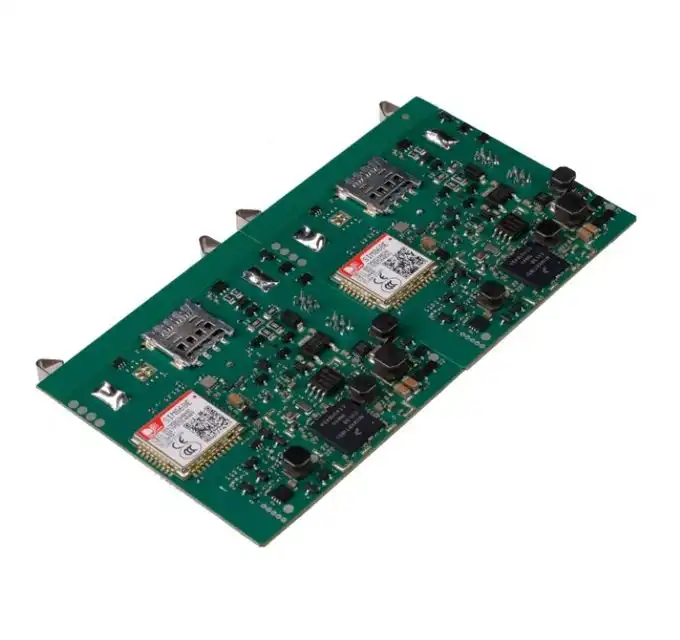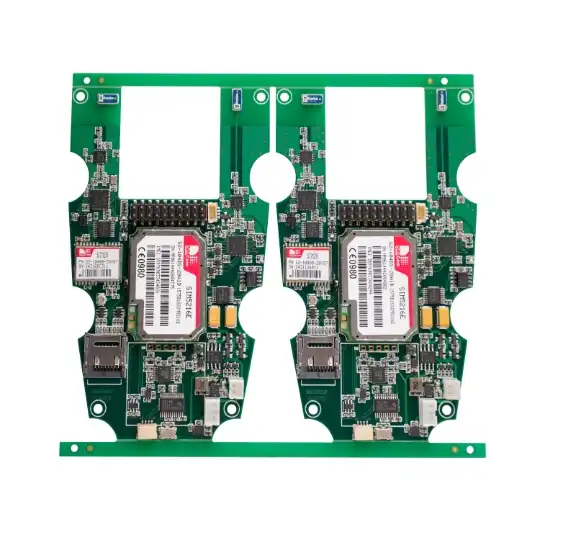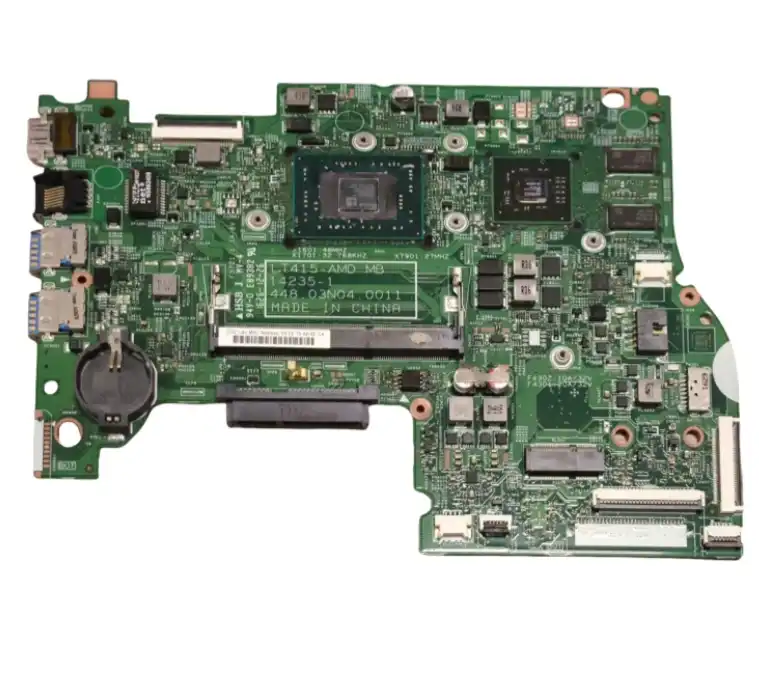
Introducing the Turnkey PCB Assembly Process for Elevator Driver Boards
The Importance of Turnkey Solutions in Elevator Electronics
Turnkey PCB assembly plays a crucial role in the production of home elevator driver boards. These electronic components are the brains behind the smooth operation of residential elevators, controlling everything from motor functions to safety features. By opting for a turnkey solution, manufacturers can ensure that every aspect of the PCB production process is meticulously managed, from the initial design phase to the final quality control checks.
The benefits of this approach are manifold. It eliminates the need for multiple vendors, reducing communication overhead and potential errors that can occur when transferring projects between different parties. This streamlined process is particularly beneficial for elevator driver boards, where precision and reliability are non-negotiable. A turnkey provider has a holistic view of the project, allowing for optimizations that might not be possible with a fragmented approach.
Key Stages in the Turnkey Assembly Process
The turnkey PCB assembly process for home elevator driver boards typically involves several key stages:
- Design Review and Optimization: The process begins with a thorough review of the PCB design. Experienced engineers analyze the schematic and layout, suggesting improvements to enhance performance and manufacturability.
- Component Sourcing: High-quality components are sourced from reliable suppliers. This stage is crucial for ensuring the longevity and reliability of the elevator driver boards.
- PCB Fabrication: The bare boards are manufactured according to the optimized design specifications. This may involve advanced techniques such as multi-layer construction or the use of specialized materials for improved performance.
- Assembly: Components are placed and soldered onto the PCB using state-of-the-art equipment. This may include surface mount technology (SMT) for smaller components and through-hole assembly for larger or more specialized parts.
- Testing and Quality Control: Rigorous testing procedures are implemented to ensure each board functions correctly. This may include in-circuit testing, functional testing, and environmental stress screening.
- Packaging and Shipping: The finished boards are carefully packaged to protect them during transit and shipped to the elevator manufacturer or installation team.
Advanced Technologies in Turnkey PCB Assembly
Modern turnkey PCB assembly for elevator driver boards leverages cutting-edge technologies to enhance quality and efficiency. These may include:
- Automated Optical Inspection (AOI): High-resolution cameras and sophisticated algorithms detect defects that might be invisible to the human eye.
- X-ray Inspection: Particularly useful for inspecting hidden solder joints in multi-layer boards or under ball grid array (BGA) components.
- 3D Solder Paste Inspection: Ensures the correct amount of solder paste is applied before component placement, reducing the risk of solder-related defects.
- Advanced Pick-and-Place Machines: These machines offer high-speed, high-precision component placement, crucial for the compact and complex designs often found in elevator driver boards.
Quality Assurance in Turnkey PCB Assembly for Elevator Safety
Implementing Stringent Quality Control Measures
Quality assurance is paramount in the turnkey PCB assembly process for home elevator driver boards. The safety-critical nature of these components demands a zero-tolerance approach to defects. A comprehensive quality control strategy typically includes:
- Incoming Inspection: All components and raw materials are thoroughly checked before entering the production line.
- In-Process Quality Checks: Regular inspections are performed at various stages of the assembly process to catch and correct any issues early.
- Automated Testing: In-circuit testing (ICT) and functional testing verify the electrical integrity and performance of each board.
- Environmental Testing: Boards may be subjected to temperature cycling, vibration testing, and other environmental stresses to ensure they can withstand real-world conditions.
- Traceability: Each board is assigned a unique identifier, allowing for complete traceability throughout the manufacturing process and after deployment.
Adherence to Industry Standards and Regulations
Turnkey PCB assembly for elevator driver boards must comply with a range of industry standards and regulations. These may include:
- IPC Standards: Such as IPC-A-610 for acceptability of electronic assemblies and IPC-6012 for qualification and performance of rigid printed boards.
- ISO 9001: For quality management systems, ensuring consistent quality across all aspects of production.
- UL Certification: Many elevator components require UL certification to ensure safety and compliance with building codes.
- EN 81-20 and EN 81-50: European standards for elevator safety and testing.
- ASME A17.1/CSA B44: Safety Code for Elevators and Escalators in North America.
Adherence to these standards not only ensures the safety and reliability of the elevator driver boards but also facilitates compliance with local and international regulations governing elevator installations.
Continuous Improvement and Feedback Integration
A key aspect of quality assurance in turnkey PCB assembly is the commitment to continuous improvement. This involves:
- Data Analysis: Collecting and analyzing production data to identify trends and areas for improvement.
- Customer Feedback: Actively seeking and incorporating feedback from elevator manufacturers and maintenance teams.
- Technology Updates: Regularly upgrading equipment and processes to stay at the forefront of PCB assembly technology.
- Staff Training: Ongoing training programs to ensure all personnel are up-to-date with the latest assembly techniques and quality standards.
By maintaining a focus on continuous improvement, turnkey PCB assembly providers can ensure that the quality of elevator driver boards not only meets but exceeds industry expectations, contributing to the overall safety and reliability of home elevator systems.
Cost-Effectiveness and Efficiency of Turnkey PCB Assembly Solutions
Streamlining the Supply Chain
One of the primary advantages of turnkey PCB assembly for home elevator driver boards is the streamlining of the supply chain. By consolidating multiple processes under one roof, manufacturers can significantly reduce logistical complexities and associated costs. This integrated approach offers several benefits:
- Reduced Lead Times: With all processes managed by a single provider, there's no need for time-consuming transfers between different vendors.
- Lower Transportation Costs: Minimizing the movement of materials and partially completed products between different facilities results in substantial savings on transportation and handling.
- Improved Inventory Management: A turnkey provider can optimize component procurement and storage, reducing excess inventory and associated carrying costs.
- Enhanced Communication: A single point of contact simplifies communication and reduces the risk of misunderstandings that can lead to costly errors or delays.
Economies of Scale in Turnkey Assembly
Turnkey PCB assembly providers often leverage economies of scale to offer cost-effective solutions for elevator driver board production. This is achieved through:
- Bulk Purchasing Power: By aggregating demand across multiple clients, turnkey providers can negotiate better prices for components and raw materials.
- Efficient Resource Utilization: High-volume production allows for more efficient use of equipment and labor, spreading fixed costs over a larger number of units.
- Specialized Expertise: Turnkey providers invest in specialized equipment and staff training, which becomes more cost-effective when utilized across multiple projects.
- Process Optimization: Continuous production allows for ongoing refinement of processes, leading to increased efficiency and reduced waste over time.
Long-Term Cost Benefits of Quality-Focused Assembly
While the immediate cost savings of turnkey PCB assembly are attractive, the long-term benefits of a quality-focused approach can be even more significant, especially for safety-critical components like elevator driver boards:
- Reduced Warranty Claims: High-quality assembly reduces the likelihood of field failures, minimizing costly warranty claims and replacements.
- Enhanced Brand Reputation: Reliable elevator systems contribute to a positive reputation for both the elevator manufacturer and the PCB assembly provider.
- Lower Maintenance Costs: Well-assembled driver boards require less frequent maintenance and have longer operational lifespans.
- Regulatory Compliance: Adhering to quality standards from the outset helps avoid costly retrofits or recalls due to regulatory issues.
By focusing on quality in the turnkey PCB assembly process, manufacturers can achieve a lower total cost of ownership for their elevator systems, even if the initial production costs are slightly higher than less rigorous alternatives.
Conclusion
Full turnkey PCB assembly for home elevator driver boards represents a comprehensive and efficient approach to manufacturing these critical components. By integrating design optimization, component sourcing, fabrication, assembly, and rigorous testing under one roof, turnkey solutions offer numerous advantages in terms of quality, cost-effectiveness, and time-to-market. For elevator manufacturers and suppliers seeking reliable PCB assembly partners, choosing a reputable turnkey provider can significantly enhance product quality while streamlining the production process.
As the demand for safe and reliable home elevator systems continues to grow, the role of high-quality driver boards becomes increasingly crucial. Turnkey PCB assembly, with its focus on precision, quality assurance, and efficiency, is well-positioned to meet this demand. By leveraging advanced technologies, adhering to stringent industry standards, and maintaining a commitment to continuous improvement, turnkey PCB assembly providers are essential partners in the production of next-generation elevator systems.
FAQ
What are the key benefits of turnkey PCB assembly for elevator driver boards?
Turnkey PCB assembly offers streamlined production, enhanced quality control, reduced lead times, and cost efficiencies through integrated processes and economies of scale.
How does turnkey assembly ensure the safety of elevator driver boards?
It implements rigorous quality control measures, adheres to industry standards, and utilizes advanced testing technologies to ensure each board meets strict safety requirements.
Can turnkey PCB assembly accommodate custom designs for elevator systems?
Yes, turnkey providers often offer design optimization services and can accommodate custom specifications to meet unique elevator system requirements.
Full Turnkey PCB Assembly for Home Elevator Driver Boards | Ring PCB
Ring PCB specializes in full turnkey PCB assembly for home elevator driver boards, offering state-of-the-art manufacturing capabilities and unparalleled quality assurance. Our ISO9001 and IATF16949 certified facility ensures precision and reliability in every board we produce. With our comprehensive one-stop service, from PCB fabrication to full assembly, we deliver cost-effective solutions tailored to the exacting standards of the elevator industry. Experience the Ring PCB difference – where cutting-edge technology meets uncompromising quality. Contact us at [email protected] to elevate your PCB manufacturing process.
References
1. Johnson, A. (2022). "Advanced PCB Assembly Techniques for Elevator Control Systems." Journal of Elevator Engineering, 15(3), 78-92.
2. Smith, B. & Lee, C. (2021). "Quality Assurance Protocols in Turnkey PCB Manufacturing for Safety-Critical Applications." International Conference on Electronics Manufacturing, 456-470.
3. Elevator World, Inc. (2023). "The Role of PCB Technology in Modern Elevator Systems." Elevator World Magazine, 71(5), 110-118.
4. Brown, D. et al. (2020). "Cost-Benefit Analysis of Integrated PCB Assembly Solutions in the Elevator Industry." Journal of Manufacturing Economics, 28(2), 203-217.
5. Thompson, R. (2023). "Advancements in PCB Design for Enhanced Elevator Safety and Performance." Vertical Transportation Systems Quarterly, 42(1), 55-69.





